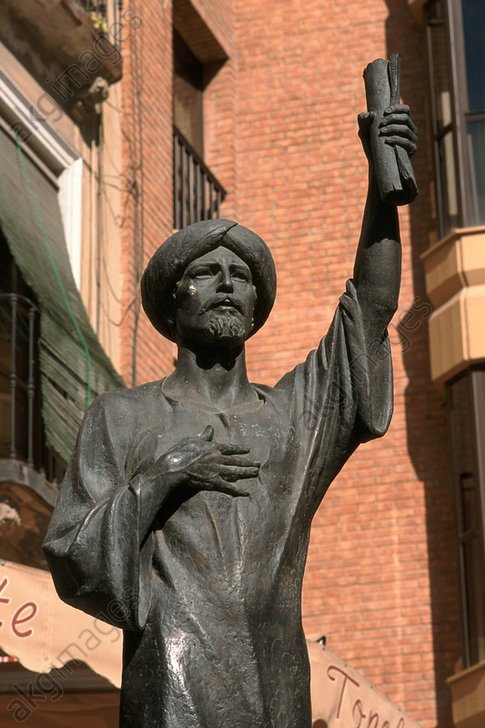Granada, Spain: 27 June –8 July 2022
The Doctoral and Teacher-Training Translation Studies Summer School (DOTTSS) is a joint initiative of 5 different universities: University of Ljubljana (Slovenia), University of Turku (Finland), University of Tampere (Finland), University of Granada (Spain) and Boğaziçi University (Turkey). Since 2012 the summer school has hosted doctoral students of TS and teachers of translators and interpreters from all around the world. The first two schools were held in Piran, Slovenia (Emuni 2012, Stridon 2013), the third was in Granada, Spain (Ibn Tibbon 2014), the fourth in Turku, Finland (Agricola 2015), the fifth in Piran, Slovenia (Stridon 2016), the sixth in Granada, Spain (Ibn Tibbon 2017), the seventh in Tampere, Finland (DOTTSS 2018), the eighth in Ljubljana (Stridon 2019), the ninth online from Istanbul (Bosphorus 2021) and tenth edition will be held in Granada (Ibn Tibbon 2022). The name of the school in Granada pays homage to one of the greatest translators of the Western world, Ibn Tibbon, a native of Granada from arguably the most important Jewish family of translators, who undertook the translation into Hebrew of ethical and philosophical works written in Arabic by Jewish scholars from Spain.
2022 GUEST LECTURER
Prof. Dr Maria González-Davies, FPCEE-Blanquerna, University Ramon Llull, Barcelona, Spain
TOPIC: RESEARCH PATHWAYS IN TRANSLATION TRAINING AND BEYOND: A COLLABORATIVE AND SITUATED APPROACH
The sessions are designed to meet the needs of researchers and instructors who are interested in collaborative and situated models of learning and teaching and who wish to acquire a more solid foundation in innovative pedagogical and didactic theory and skills. The program will offer both intensive instruction and a forum for constructive dialogue as the curriculum includes reflection around the main pedagogical approaches and best situated practices in translator and interpreter training. Along with a survey of pedagogical principles, the participants will be provided with numerous opportunities to collaboratively develop their research and discuss their own teaching practices following the instructional framework presented by Richards and Rodgers (1986/2014): approach, design, and procedures. Finally, a session will be devoted to exploring the role of translation as described in well-informed plurilingual approaches to language learning.
Reference:
Richards, Jack and Theodore Rodgers (1986/2014). Approaches and Methods in Language Teaching, London and New York, Routledge.
The language of instruction is English.
MEMBERS OF THE STEERING COMMITTEE
Dr Dorothy Kelly, University of Granada, Spain
Dr Kaisa Koskinen, University of Tampere, Finland
Dr Outi Paloposki, Turku University, Finland
Dr Nike K. Pokorn, University of Ljubljana, Slovenia
Dr Sehnaz Tahir-Gürçağlar, Boğaziçi University, Turkey
MEMBERS OF THE LOCAL ORGANISING COMMITTEE
Dr Dorothy Kelly, University of Granada, Spain
Dr Elena Ruiz Cortés, University of Granada, Spain
TEACHING STAFF
Dr Nike K. Pokorn, University of Ljubljana, Slovenia
Dr Tamara Mikolič Južnič, University of Ljubljana, Slovenia
Dr Agnes Pisanski Peterlin, University of Ljubljana, Slovenia
Dr Outi Paloposki, Turku University, Finland
Dr Sehnaz Tahir-Gürçağlar, Boğaziçi University, Turkey
Dr Jonathan M. Ross, Boğaziçi University, Turkey
Dr Şule Demirkol, Boğaziçi University, Turkey
Dr Dorothy Kelly, University of Granada, Spain
Dr Catherine Way, University of Granada, Spain
Dr María del Mar Haro Soler, University of Granada, Spain
PARTICIPATION
Participation is intended for doctoral students in the early stages of their projects, and teachers of translation at the MA level or its equivalent. Also, other academics and professionals who are involved in research in translation and interpreting studies or in other fields of doctoral research where translation, interpreting or intercultural mediation is of focal interest are invited to participate.
Individualized tutorials will be organised. In tutorials the doctoral students have the opportunity to discuss their own individual projects with all the teachers of the school, including with the guest professor. Furthermore, each student is expected to present her/his research project, and will have the opportunity to debate issues, particularly relating to methodology, with their peers and the teaching staff of the summer school.
Participants shall be invited to submit an article to be refereed and published in a collective volume.
FEES AND PAYMENT
The whole fee for the Summer School is 750€. It covers:
a) registration fee,
b) tuition fee,
c) course materials,
e) access to University of Granada facilities.
The fee does not cover travel expenses, accommodation or meals. The School will recommend accommodation for students selected at a reasonable price.
A limited number of partial bursaries will be available for applicants who demonstrate need and merit. Any applicant wishing to be considered for a bursary must ensure that a bursary request accompanies their application to the school. In addition, interested students are advised to apply for the EST summer school scholarship. Your University may offer funding for participation in short mobilities such as this under the Erasmus+ Programme if it has a current Interinstitutional Agreement (IIA) with the University of Granada.
Once students have been accepted for the course, they are responsible for paying the fee. Only those who have been accepted by the board of the school and have paid the fee will receive an admission letter, which can be used for visa application.
An e-mail will be sent to the accepted candidates regarding payment procedure.
APPLICATION PROCESS
Application deadline: 18 April 2022.
Decisions notified by 28 April 2022
Students applying for the summer school are required:
a) To send a tentative research proposal (or statement of purpose) (max. two pages).
b) To send a recent curriculum vitae indicating experience and/or training in Translation Studies (max. two pages),
c) To fill in the application form (available here) and send everything to ibn_tibbon@ugr.es

